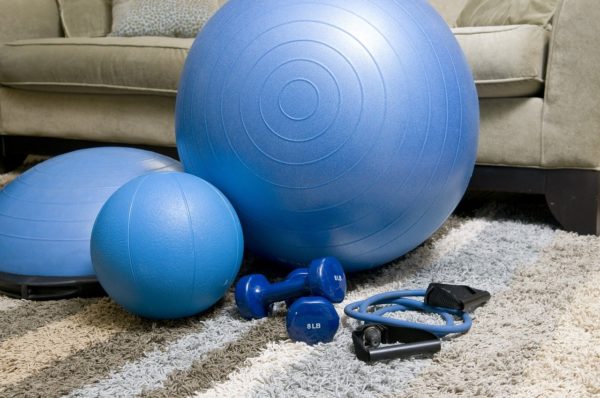Exercise Is So Important For Your Mental Health
It may seem almost impossible to exercise in these current times of lockdown and working from home – with the weather not always being optimum for going outside; with trying to look after your kids at home and ensuring they are being stimulated and “homeschooled”; and dealing with a boss who wants you a hundred percent committed to your work even though you are home and juggling more balls than you can count… why and how do you fit in exercise?
Most of us know that when we get up from the couch and force ourselves to do some type of activity or exercise, we always feel better right? Even if it’s really hard, and we get out of breath and all sweaty – we always feel better after we’ve got our heart rates high and our bodies moving – but why? And is it all in our head, or does it actually help?

The Chemical Reaction
The “fight-or-flight” response that occurs when we are under stress and under pressure can cause an increase in blood pressure and heart rate. This “fight-or-flight” response will be happening in most of us many times a day as we read the news and the numbers of patients with COVID-19 increase, as well as due to financial and other stresses in these uncertain times.
The “fight-or-flight” response causes cortisol and adrenaline to be released. These chemicals can affect your digestive system and your brain as blood is taken away from your intestines and your brain to your limbs to run away or fight. Over the long term this can cause other health problems and affect your mood and concentration.
When you exercise, your brain releases endorphins and serotonin. These are your happy hormones. Endorphins are neurotransmitters that help to relieve pain and stress. Serotonin boosts your mood and can improve your overall sense of well-being. Other neurotransmitters that are released are dopamine and norepinephrine. These help your brain to regulate mood and stress.
When you exercise regularly, the chemicals released can help to balance your adrenaline, cortisol and other stress-causing hormones. Exercise or physical activity can help to reduce the cortisol and adrenaline in your system and over time, with regular movement, you can help your body to cope better with stresses.
Other Benefits of Exercise
Exercise can help to distract you from the everyday stresses that are going on by focusing on your body while it is moving or the change in scenery around you. These types of distractions give your mind a break from focusing on the problems going on in your life.
Also focusing on and accomplishing exercise goals help your levels of self-confidence and self-esteem.
Which Exercise Is the Best for Mood Boosting?
Studies have shown that it is not the type of exercise that you do but rather the duration. It is recommended to do 150 minutes of moderate exercise or 75 minutes of vigorous exercise per week.
This exercise can be broken down into smaller chunks of 10 minutes as long as, over the week, they add up to the recommended amount. So very simple things can start to get you moving to improve your mood – taking the stairs instead of the elevator; parking your car further away at the mall, or walking to the restroom on another floor at work. Whilst at home during lockdown things like doing the housework or some gardening can also add up towards your moving minutes for the week.
As the UK is currently allowed to go outside every day for 30 minutes to exercise during lockdown, use this time to walk or run, get fresh air and be outside.
To feel the real benefit of physical activity for your health, you need to stick to it for 4-6 weeks. The longer you keep up the activity, the more it will result in changes in your brain.
However, you will start to feel the effects of the mood-boosting chemicals right after each bit of exercise you do.

Go for It!
If you are keen to choose a new exercise to try out, good for you! But remember to find something you enjoy, otherwise, it’s going to be easy to miss out on it when you’re not feeling up for it. So if you don’t like swimming, don’t swim but be open to trying new things until you find that thing you enjoy. If you are a social person, find an exercise you can do in a group or with a friend you can try online together – it will feel like a social event rather than an exercise commitment.
There are many free classes online at the moment to try in the comfort of your own home – from yoga to Pilates, to aerobics and strength training – just try something new, don’t do too much at once and see what you enjoy.
So even if it is tough at first, it is worth keep going at it. If you can positively change your mood and reduce your daily stresses by adding in a small amount of activity into your life, wouldn’t you want to make that change?
If you are unsure of what exercise is right for you due to previous injuries or if you are unsure of where to start and would like a program tailored to you, our physiotherapists are consulting online at the moment with telephone and video consultations. They can guide you to your first steps of exercise if you need some help.
References:
- https://health.gov/sites/default/files/2019-09/Physical_Activity_Guidelines_2nd_edition.pdf
- https://www.webmd.com/depression/guide/exercise-depression#1
- ADAM Medical Encyclopedia. The Benefits of Exercise.
- ADAM Medical Encyclopedia. Report on Exercise.
